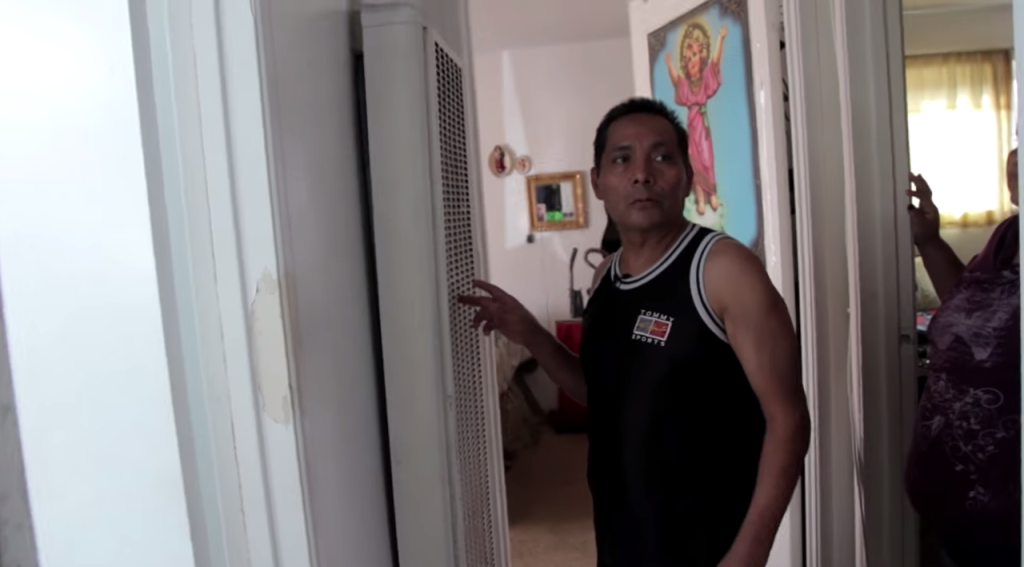 Abraham Rojas points to a non-functioning wall heater in his apartment in December 2014. Rojas and his wife sought help for this and other problems from a tenants rights attorney, in part because a language barrier kept them from getting adequate service from city inspectors. | Photo Credit: Brian Myers, Media Arts Center San Diego
Abraham Rojas points to a non-functioning wall heater in his apartment in December 2014. Rojas and his wife sought help for this and other problems from a tenants rights attorney, in part because a language barrier kept them from getting adequate service from city inspectors. | Photo Credit: Brian Myers, Media Arts Center San Diego
In response to a KPBS and Voice of San Diego investigation into substandard housing, San Diego Mayor Kevin Faulconer said earlier this year he’d form a special enforcement team to help tenants.
The program got underway this month as the new fiscal year began, and its first order of business was improving access for non-English speakers.
Residents can now file complaints against landlords for unsafe housing in their native tongue. The city has added a translation function to its web page for its Code Enforcement department, which enforces state and city housing rules.
Ariana Gallegos is a City Heights-based housing counselor with the San Diego Tenants Association and said the change may sound small. But she said three-quarters of her clients don’t speak English.
“It’s a good step. It’s a move forward,” said Gallegos, who gets between 40 and 80 calls a month for help with housing problems. “Yet, we still have to provide the tenants with some sort of guidance. We still need to monitor how this is going to be working.”
The Tenants Association is a housing advocacy program offered by the Community Leadership Association, a nonprofit that works to empower low income, migrant communities. The group called attention to the lack of access for non-English speakers during hearings on the mayor’s code compliance budget this spring.
They also asked that staff taking housing complaints via phone speak multiple languages.
Tracy Elliot-Yawn manages the new code compliance effort, which includes four new inspectors, and said recent hires in the department are bilingual.
“This is a very important issue to our community and our council and mayor,” Elliot-Yawn said. “We want to be able to have the government open to all of our citizens.”
The investigation into substandard housing showed potentially hazardous conditions – mold, infestations and structural and electrical damage – persisted at rentals throughout City Heights, Logan Heights and other neighborhoods despite residents repeatedly filing complaints about their landlord.
Nearly 70 percent of individuals in City Heights and Logan Heights are renters, according to the U.S. Census. And between 30 and 40 percent are not fluent in English.
The new enforcement team aims to better serve these communities.
Elliot-Yawn said inspectors are now assigned to council districts so they can work with district offices and resident groups to root out problem landlords. Much of the proactive enforcement in the past had centered on blighted foreclosures and illegal medical marijuana dispensaries.
The program is still in the early stages. In the coming months, Elliot-Yawn said, residents can expect to see inspectors out in their community doing outreach and education about housing law and the code complaint process.
